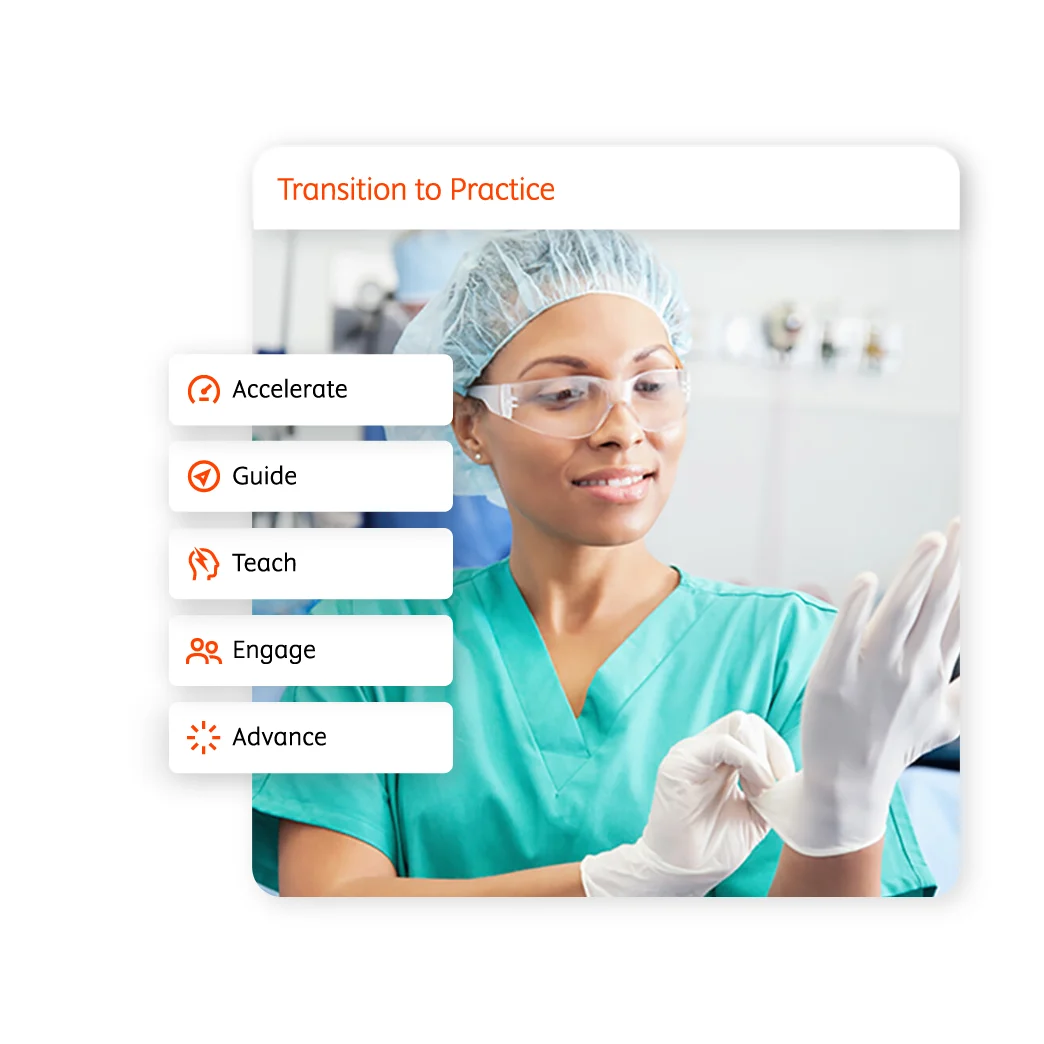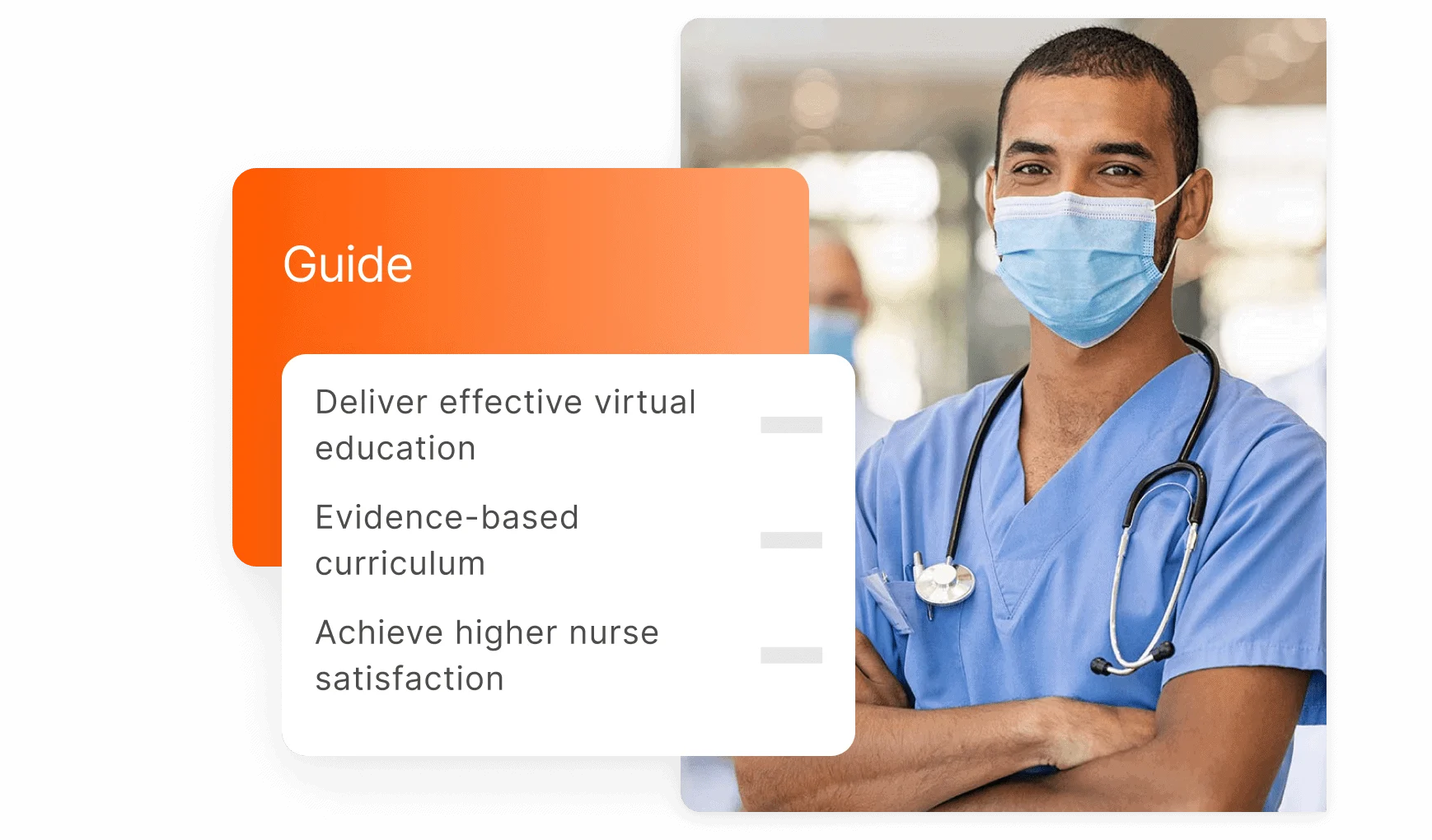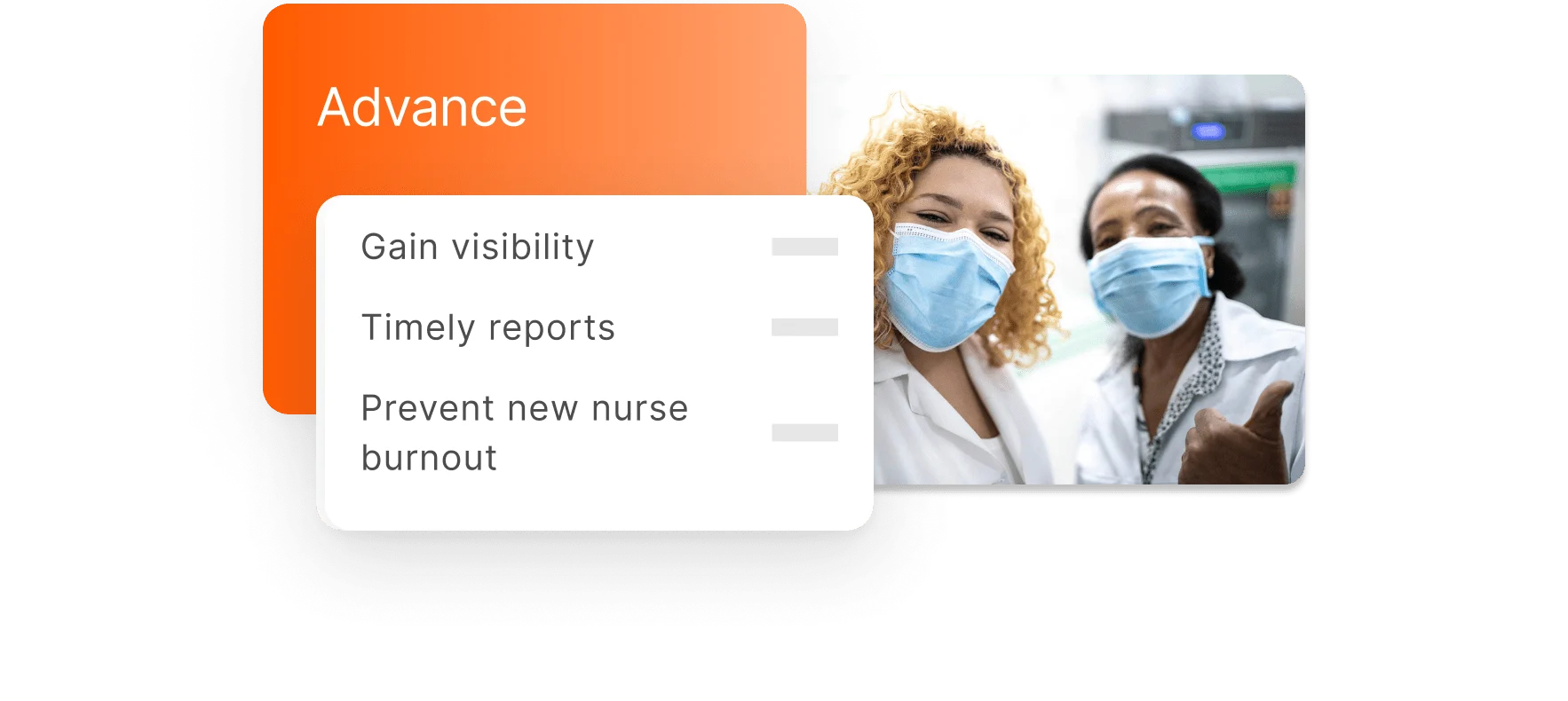Accelerate your new nurses’ skills and confidence
New nurses are entering a demanding environment, with more complex patient needs and larger patient-to-nurse ratios than ever before.1 They’re also getting their licenses faster, which limits their exposure to real-world clinical care. These factors mean many of today’s novice nurses are transitioning to practice feeling isolated, unsure, and overwhelmed. In fact, 50% of them report missing signs of life-threatening conditions.2 With Elsevier’s Transition to Practice virtual learning, you can build new nurses’ professional skills and confidence to deliver top quality patient care.









